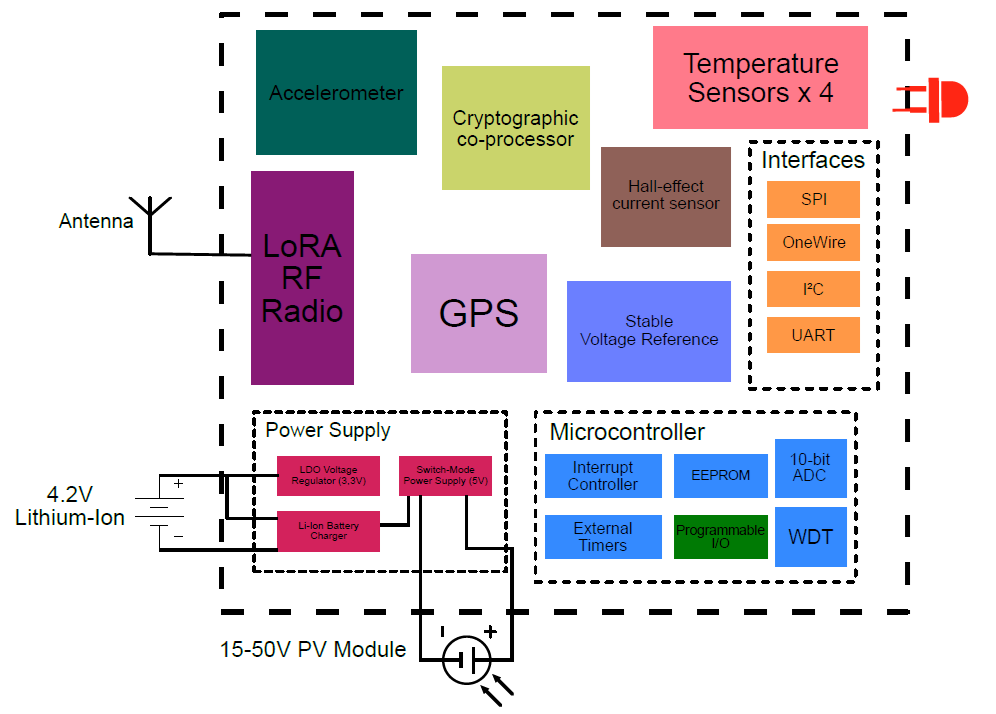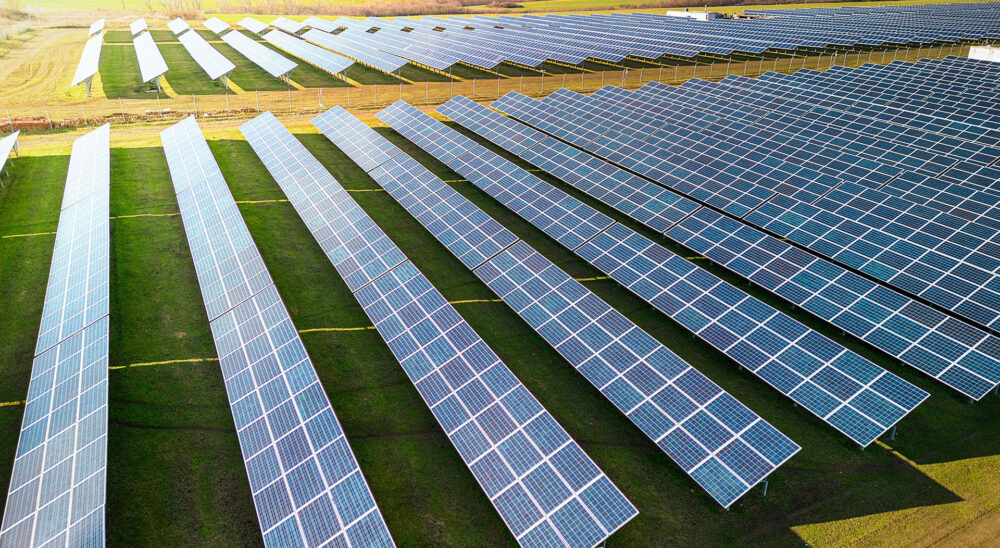Solar photovoltaic (PV) technology is a cornerstone of sustainable energy solutions. Yet, ensuring the efficiency and reliability of large-scale solar installations presents significant challenges. Addressing this, Franco Fourie has, under supervision of Dr Arnold Rix, developed an advanced monitoring system to optimise the performance and maintenance of solar PV plants.
Addressing Maintenance Challenges
Maintaining extensive arrays of solar panels requires substantial resources. Inefficient maintenance practices contribute to over a quarter of solar PV plants’ operational and maintenance (O&M) costs. These expenses often rise due to undetected underperforming or compromised solar modules, leading to energy losses and increased costs. Recognising this issue, Franco’s research focuses on creating a smart monitoring system that facilitates early detection of problems and supports adaptive maintenance strategies.
His research introduced a sophisticated wireless monitoring system designed to surpass the limitations of current PV monitoring solutions. The system comprises three main components:
- Smart Field Nodes (SFNs): These user-friendly devices are equipped with sensors that regularly measure key electrical parameters, temperatures, and battery voltage of each PV panel. With high precision—0.68% for voltage, 5% for current, and ±0.5°C for temperature—SFNs ensure accurate data collection.
- Full-Duplex Gateway: Acting as the communication centre, the gateway employs a listen-before-talk protocol to support scalable and secure data transmission. This method allows the network to expand seamlessly, accommodating more than ten SFNs that communicate simultaneously without compromising performance.
- Web Application: The intuitive web interface offers real-time and historical data visualisation for each PV panel. This platform enables users to monitor performance metrics efficiently and perform detailed analyses to identify and address issues promptly.

Figure 1: High-level block diagram of a SFN illustrating all its relevant components.
Enhancing Security and Scalability
A key feature of the developed system is its strong security framework. Data transmitted via LoRa wireless sensor networks is encrypted using AES-128, safeguarding sensitive information from potential threats. Additionally, the system’s scalable design allows easy integration with various infrastructures, making it a versatile solution for diverse large-scale solar installations.
Beyond hardware advancements, the project introduces a new approach to firmware development. By adopting the active object programming paradigm, the research emphasises modularity and scalability in firmware design. This methodology not only improves the system’s adaptability and longevity but also sets the stage for future collaborative research and development initiatives at the Department.
Field testing of the smart monitoring system revealed excellent measurement accuracy and a notable 93% packet delivery rate across SFNs. These outcomes confirm the system’s reliability and effectiveness in real-world conditions. Furthermore, the successful demonstration of scalability highlights the system’s potential to support extensive solar PV research and development projects moving forward.
While the current system represents a significant achievement, ongoing efforts aim to enhance positional accuracy and address other limitations, such as environmental protections for SFNs and compliance with safety and electromagnetic standards. These improvements will ensure the system’s durability and safety, making it even more reliable for long-term use in various settings.
Building a Foundation for Innovation
Franco’s research has successfully developed a secure, scalable, and precise smart monitoring system that overcomes key limitations of existing PV monitoring solutions. By improving firmware modularity, simplifying installation processes, and providing a universally adaptable platform, this project establishes a solid foundation for future advancements in solar energy monitoring and management.
This innovative work showcases the exceptional research capabilities within the Department of Electrical and Electronic Engineering and contributes significantly to global efforts toward more efficient and sustainable solar energy solutions. As the demand for renewable energy grows, such advancements are crucial for optimising the performance and reliability of solar PV installations, bringing us closer to a sustainable future.
Download and read the full research paper: https://scholar.sun.ac.za/items/6ed2835f-00ba-4a47-a70e-7f2f659c7957





